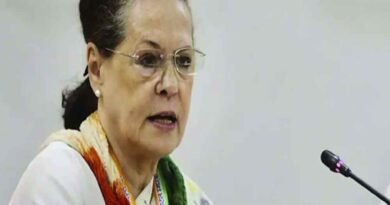Contradictions in the Congress’ cupboard
The party has repeatedly proved that governance is more important to it than ideology as it indulged in the politics of convenience for decades
Salman Khurshid has done much-needed service to the Congress by triggering an ideological debate in the party. Until now, the popular impression was that the party was a platform on which politicians met in the pursuit of power. Ideas or ideologies were merely the responses to the challenges of the hour. When MK Gandhi felt that if Hindus and Muslims united, they could squeeze out the British by the early 1920s, he became president of the Khilafat Committee. This movement was to coerce the British to somehow retain the Sultan on the throne of Turkey. If they succeeded, he would also continue to remain the Caliph of all Sunni Islam. MA Jinnah stayed away from these gymnastics because he knew that the final call would be taken by Kamal Pasha, who was later called Atatürk, and not by the British Government.
When Gandhi saw that the Turkish ice was not melting, in 1921 he gave a call for noncooperation with the British Indian Government. This involved nonviolence which did not excite the Muslim saliva and they resorted to rioting; Malabar was a horrific holocaust of murder, rape and loot by the Moplas. When upbraided by Annie Besant, a past president of the Congress, Gandhi replied that the Mopla was obeying the rules of his religion. When the violent mood spread to Kohat in Baluchistan, Gandhi exhorted the Hindus to display their courage by allowing the rioters to kill them. He withdrew the Non-Cooperation Movement because a police station was set on fire at Chauri Chaura in UP. It was easier to retreat than to go forward. In 1948, when KM Munshi came to Mani Bhawan in Bombay to seek Gandhi’s blessings before any military action was ordered, the great man was silent on the subject of the action. Otherwise, his blessings were with Munshi.
In 1947, Nehru told General Lockhart, the interim C-in-C of the Indian Army, to wind down the force because we are a nation of peace and police were adequate to protect India. Yet in 1948, we lifted tanks to the Kashmir Valley. In 1961, our troops were proud to conquer Goa, Daman and Diu, the Portuguese colony inside Indian territory. At Avadi in 1955, we swore by following a socialistic pattern of society while Nehru continued to reside in the British C-in-C’s palatial bungalow at Teen Murti.
Indira Gandhi, at one stage, asked which country is free from corruption. She was generally right and stood absolved. She talked socialism and practised the ideology as she understood it; she nationalised the coal industry as well as 19 bigger banks and general insurance. No one explained to her that this was the adoption of State capitalism. Where was the society or the public in all this? Certainly nationalised assets gave the Government power and patronage but the people generally remained poor. Gandhi and nonviolence were overlooked so that we could march into East Bengal in 1971. It was a military victory but, at the same time, we removed a millstone from around Islamabad’s neck. We cannot deny that for the Congress, it was a military victory that ensured a landslide in the 1972 general election on the slogan “Garibi Hatao”.
The Nehruvian socialism endured for long until PV Narasimha Rao had to overturn it overnight upon coming to power in 1991. He had won the election on a socialist manifesto and governed with a capitalist goal. No one raised a question on the contradiction; ours is a considerate electorate. When the vigour provided by Rao’s liberalisation got exhausted, Indira Gandhi’s grandson declared that the Congress was a Muslim party. Secularism was rubbed off the Congress blackboard with the ease of a soft duster.
Of all leaders, a BJP heavyweight once asserted at Bangaru Laxman’s abhishek in Nagpur that governance is more important than ideology. Yes, this is partly true; because Rao would have been chain bound to not liberalise in 1991 and India would have been in big economic trouble. On the other hand, ideology helps bind the party members together; whereas power can at best keep the Ministers together. That is one of the main trouble spots for the Congress today. This party depended on their top leader to hold them together; first MK Gandhi, then Jawaharlal Nehru, Indira Gandhi and Rajiv, even Sonia Gandhi. Once the leader is deficient in charisma, the problem begins. It is not that the younger leaders are very weak but they are up against a phenomenal giant and his party. This hasn’t happened ever before. The Communist parties had the benefit of ideology but it was a philosophy which had been washed away by history and its Soviet leadership was blissfully unaware.
Even Karl Marx was not aware of the lacuna in his theory. He was so obsessed with distribution that he overlooked the importance of production. He wanted the bourgeoisie out because of its wealth. But what about its managerial function; the party apparatchik is no replacement nor, for that matter, the union leader. Being a theoretician, he could overlook this but what was his friend and partner Friedrich Engels doing? Why didn’t Marx check it with him?
(The writer is a well-known columnist, an author and a former member of the Rajya Sabha. The views expressed are personal.)
Source: The Pioneer




